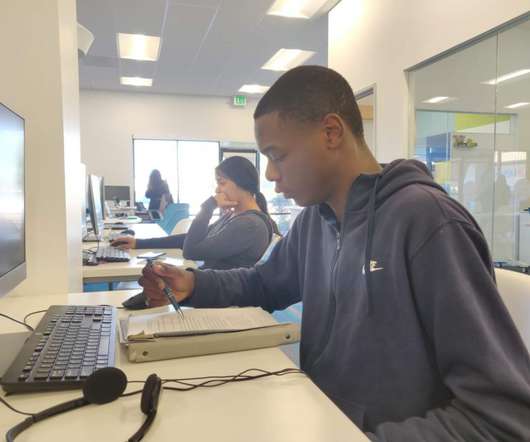How a dropout factory raised its graduation rate from 53 percent to 75 percent in three years
The Hechinger Report
DECEMBER 5, 2017
Talent Development Secondary, a nonprofit that grew out of a Johns Hopkins University study on dropout rates, is the data-driven arm of the Diplomas Now model; it identifies kids at risk of dropping out and establishes a schoolwide process of intervention and support services to keep them on track to graduate.















Let's personalize your content